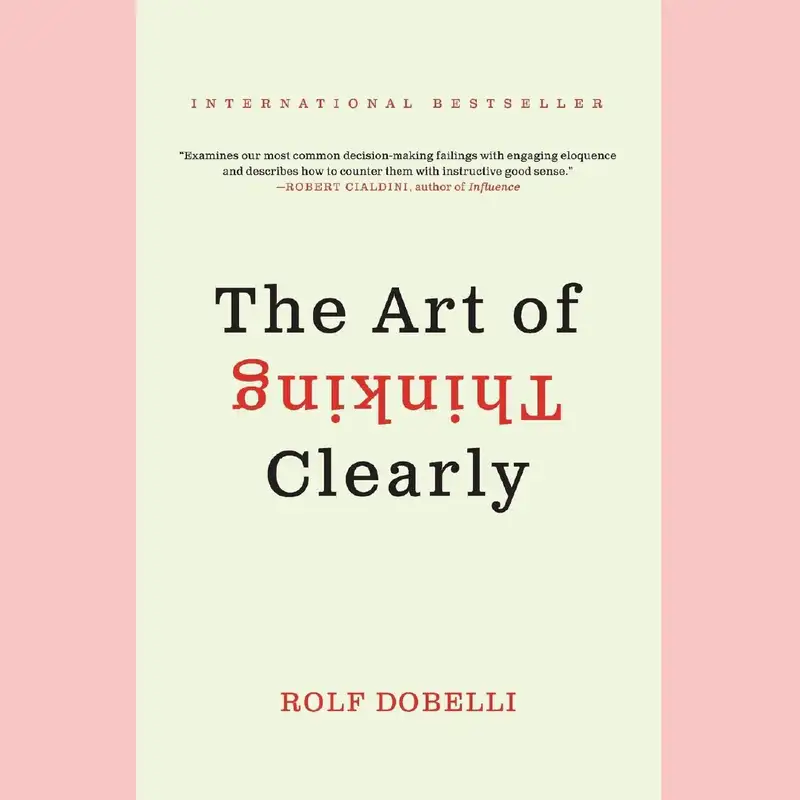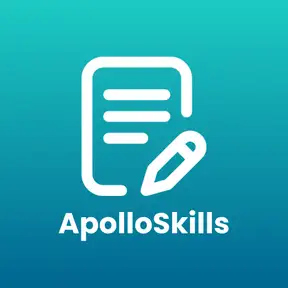The Art of Thinking Clearly by Rolf Dobelli
Summary: The Art of Thinking Clearly by Rolf Dobelli
Summary: The Art of Thinking Clearly by Rolf Dobelli
Clear and rational thinking is paramount in pursuing personal and professional growth. Rolf Dobelli's "The Art of Thinking Clearly" offers profound insights into the cognitive biases that often cloud our judgment. Understanding these biases can significantly enhance your decision-making skills. Here, we explore key concepts from Dobelli’s work that will help you think more clearly and make better decisions.
Cognitive Biases: The Invisible Influencers
Cognitive biases are systematic patterns of deviation from norm or rationality in judgment. They influence how we perceive information and make decisions, often leading us astray without awareness. Here are some crucial biases to recognize and mitigate:
Example: A product development team might dismiss a new idea because it deviates from their usual strategies, influenced by their inherent biases and preconceived notions about what works. To mitigate this, encourage the team to adopt a more open-minded approach and evaluate new ideas based on their merits rather than past assumptions.
Confirmation Bias: Seeing What We Want to See
Confirmation Bias is the tendency to search for, interpret, and remember information that confirms our preconceptions. It can cause us to ignore contradictory evidence and cling to false beliefs.
Example: Imagine a marketing team convinced their current campaign is the best approach despite declining sales. They focus on any positive feedback while disregarding harmful data. To counter this bias, the team should seek information that challenges their views and consider alternative marketing strategies.
Survivorship Bias: Ignoring the Invisible
Survivorship Bias involves focusing on the people or things that "survived" a process while overlooking those that did not. This bias can lead to overly optimistic beliefs because failures are not visible.
Example: A tech startup only looks at successful companies to model their business strategy, ignoring the many failed startups. They should also study why similar startups did not succeed in making more balanced decisions.
Clustering Illusion: Finding Patterns in Randomness
The Clustering Illusion is our tendency to see patterns in random events. This bias can lead to incorrect conclusions about cause and effect.
Example: A sales team might notice a pattern in sales spikes and attribute it to their marketing efforts when, in reality, it could be due to random fluctuations or external factors like seasonality. Be cautious of inferring causality from tiny sample sizes and look for robust statistical evidence before concluding.
Sunk Cost Fallacy: Throwing Good Money After Bad
The Sunk Cost Fallacy is the misconception that one must continue an endeavor because of past money, effort, or time investments. This fallacy can trap you in a failing course of action.
Example: A company continues to invest in a failing project because it has already spent significant money on it. To make more rational decisions, it should focus on future costs and benefits rather than past investments.
Recency Effect: Overvaluing the Latest Information
The Recency Effect is the tendency to weigh recent events more heavily than earlier ones. This can skew judgment towards recent information at the expense of the overall context.
Example: During performance reviews, a manager might give more weight to an employee's recent achievements, overlooking consistent performance over the entire review period. Ensure you consider the full range of data available, not just the most recent.
Social Proof: Following the Crowd
Social Proof is the tendency to look to others to determine how to act in uncertain situations. This can lead to herd behavior, which is not always optimal.
Example: In financial markets, investors might follow the crowd and buy trending stocks, regardless of their value. Develop your criteria for decision-making and be prepared to stand apart from the crowd when necessary.
Authority Bias: Trusting the Experts
Authority Bias is the tendency to attribute greater accuracy to the opinion of an authority figure and be more influenced by that opinion. While expertise is valuable, it is important to critically evaluate the information and opinions provided by authority figures instead of unconditionally accepting them.
Example: A company might follow a consultant’s advice without question, even if it goes against their data or experience. Critically assess the consultant's recommendations and validate them with independent research.
Outcome Bias: Judging by Results Alone
Outcome Bias is judging a decision based on its outcome rather than on the quality of the decision at the time it was made. This bias can lead to unfair evaluations and learning the wrong lessons from experiences.
Example: A business decision that led to a profitable outcome might be considered a good decision, even if it involved significant risk and poor judgment. Please focus on the decision-making process and learn to distinguish between good decisions and outcomes.
Negativity Bias: Focusing on the Negative
Negativity Bias is the tendency to focus more on negative experiences or information than positive ones. This can result in a skewed perception of reality, making situations seem worse.
Example: A company might focus on a few negative reviews despite overall positive feedback after a product launch. Balance your evaluation by giving adequate weight to positive information and experiences.
Sign up for Apollo Advisors: Workshops, Mentorship and Masterclasses for Entrepreneurs
Helping leaders discover, develop and drive their ventures
No spam. Unsubscribe anytime.
Practical Steps to Clear Thinking
Seek Disconfirmation: Actively look for information that contradicts your beliefs.
Consider the Invisible: Acknowledge the unseen elements, such as failures and non-survivors.
Avoid Hasty Conclusions: Base your decisions on robust evidence and larger sample sizes.
Future Focus: Make decisions based on future benefits and costs, not past investments.
Holistic View: Weigh all relevant information, not just the most recent.
Independent Thinking: Develop your criteria and be prepared to deviate from the crowd.
Critical Evaluation: Assess information from authority figures critically.
Process Over Outcome: Evaluate decisions by their process, not just their results.
Balanced Perspective: Give adequate weight to both positive and negative information.
Understanding and mitigating these cognitive biases can enhance your clarity of thought and make more rational, effective decisions. Start applying these principles today, and watch your personal and professional life transform with better decision-making.
About the Author: Rolf Dobelli
Rolf Dobelli is a Swiss author, entrepreneur, and thinker best known for his works on clear thinking and rational decision-making. Born on July 15, 1966, in Lucerne, Switzerland, Dobelli initially pursued a business career, earning an MBA and a Ph.D. in economic philosophy from the University of St. Gallen.
Dobelli co-founded getAbstract, a company that provides business book summaries, a venture reflecting his passion for distilling complex ideas into accessible insights. His interest in cognitive biases and decision-making processes led him to write "The Art of Thinking Clearly," which has been translated into numerous languages and has become an international bestseller.
Dobelli’s writing is characterized by a practical, no-nonsense approach to understanding how our minds work. His insights are drawn from scientific research, business acumen, and personal experience, making his advice relatable and actionable.
In addition to his work as an author, Dobelli is an accomplished public speaker and has written several novels. He continues to explore themes related to human cognition, clear thinking, and effective decision-making, helping individuals and organizations navigate the complexities of modern life.
Feel free to share this blog post with your network or integrate it into your learning platform, ApolloSkills, to empower others on their journey to clearer thinking and better decision-making.

